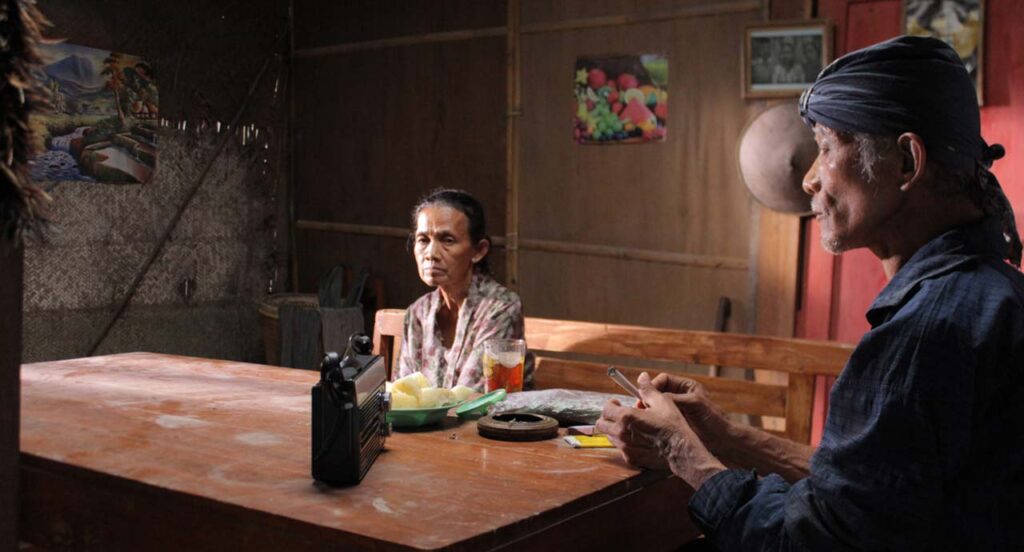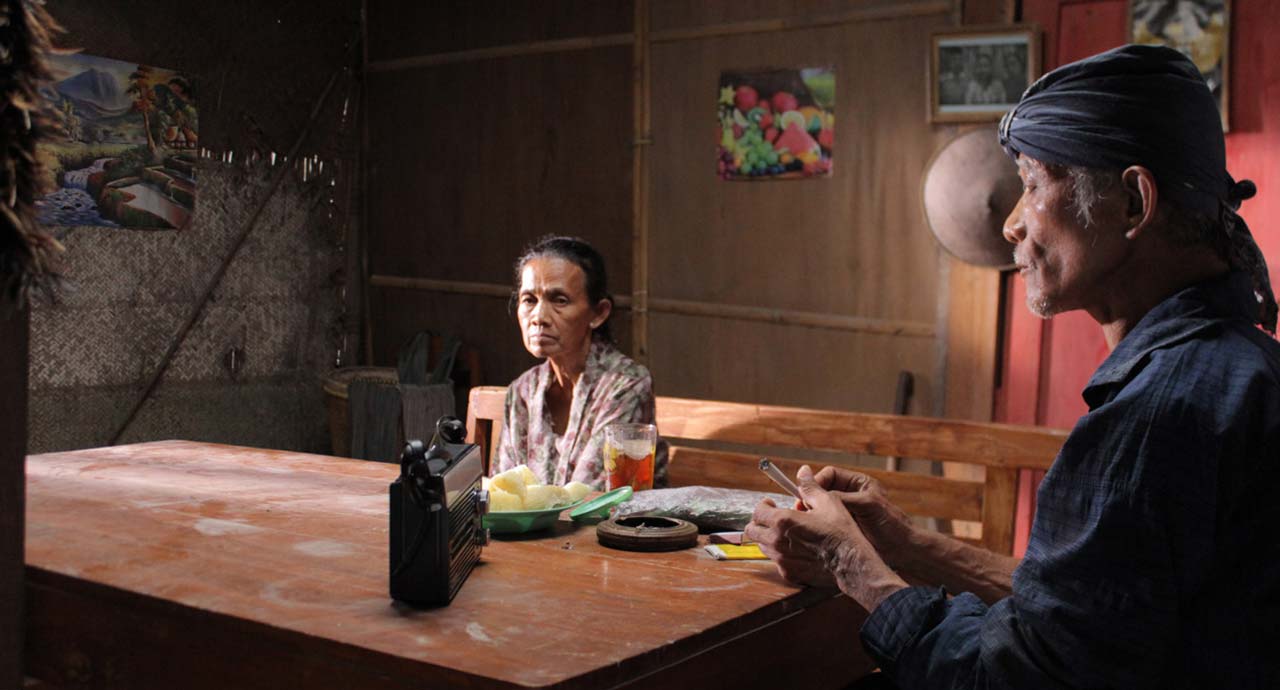




Films in this Programme
Our (Sivaroj Kongsakul, Thailand)
Thread (Virginia Kennedy, Malaysia)
As I Lay Dying (Nguyen Phuong Ahn, Vietnam)
Soulik (Chiang Wei Liang, Singapore)
Last Night Our Daughter Came Back Home (Adi Marsono, Indonesia)
From the charmingly mundane to the heavily contemplative, these short films attempt to capture the ephemerality of human relationships. With that, notions of past and present, of arrival and departure, leave us to explore a vision of liminality that is seemingly universal. The films in this collection are, like many of the finer things in life, not for everybody. They can appear inaccessible. But it is precisely because of that that I believe lies value in exploring them, mining them for meaning. That is, after all, what film festivals are about.
The collection eases itself in with Our by Sivaroj Kongsakul. This is a film that reminds me of the romance found in everyday life that appears most authentic. The premise is simple: a newlywed couple having a conversation against the backdrop of the open sea. Sounds like a typical slice of life, doesn’t it? Yet, despite the vast calmness of the ocean, there lies a certain tension that runs underneath it all. Waves repeatedly come and go, never settling — just like our lives and our futures. Here, the uncertainty of the future is never better mediated by the taste of sticky rice, immediate and tactile, timelessly reminding us of the moment. In lieu of the ephemeral nature of life, choosing to love presents itself as perhaps the greatest challenge.
The film that follows, Thread by Virginia Kennedy, is (quite aptly) a departure from romanticized relationships. Instead, deceit and exploitation only serve as the means of revealing the cost of human desires. Threads that bind are just as easily severed, just like the nature of relationships. In terms of its cinematic style,
Thread is arguably the most accessible in the collection, which can be good or bad depending on ones palate. Although I have to say, this was perhaps the short film that resonated the least with me.
As I Lay Dying by Nguyen Phuong Anh is the experimental piece in this collection. It is most conscious of its medium, as well as the most visually jarring of the lot. Images of death, are repeatedly juxtaposed and superimposed, as if seeping into the realm of the everyday. Here, the filmmaker’s nihilistic vision of the urban landscape is definitely disconcerting, and it has (for better or worse) stuck with me on some level.
The film is undoubtedly heavy in the way it deals with memory. The way its images constantly move back in time gestures toward something lost, forgotten, as if we can never know where it came from. There is an intense longing, almost as if the filmmaker herself is desperate for some semblance of going back to a time before trauma. Just as the loneliest whale can never be heard, Phuong Anh’s longing for her grandmother seems futile. She is gone and now the fear of losing the memory of her is overwhelming. I think there is beauty in that tragedy.
The last two films are perhaps the main reason why I’m making a value judgment by saying that this collection is the most visually challenging in that they demand a lot of emotional investment from the viewer.
Soulik by Chiang Wei Liang is an intense melodrama — a couple forced to confront their problems as Typhoon Soulik closes in on them. As one might expect from a director that is currently based in Taiwan, the film has footprints of the Taiwanese New Wave (*ahem* Tsai Ming Liang) all over it. Again, this is a matter of taste, there are people who cannot tahan (bear) this brand of cinema. Wei Liang’s short film is probably the slowest of all the short films in competition this year. It asks the viewer to scrutinize each and every frame, weaving a narrative almost purely through long, meticulously composed images.
Instead of focusing on fleshing out a well-detailed narrative, the slow film attempts to lull viewers into a certain frame of mind. It is contemplative, almost hypnotic. By experiencing time and silence in the same way as the characters, the filmmaker invites us to feel the underlying tension that comes with leaving, an unspoken pain that can only be felt. It is almost as if the characters are suspended in time. Little is happening, yet there is seemingly so much internal bleeding. Having said that, Soulik can feel a little self-indulgent (although I really liked the final scene), and as a fan of the Taiwanese New Wave, I’m not entirely sure if Soulik offers anything innovative. Still, for those fresh to Taiwanese cinema, this would be a good introduction.
Last but definitely not least, Semalam Anak Kita Pulang (Last Night Our Daughter Came Back Home) by Adi Marsono is about a mother who yearns for news of her daughter, who has not returned since leaving home. Again, Daughter is deliberately slow, inviting the viewer to indulge in the absurdity and loneliness of the mother’s longing. The memory of her daughter seemingly on loop, clear, untouched — like the rhythmic beating of straw on wood. But it only serves to remind her of her daughter’s departure, the ungraspable shadow of the daughter she once had.
At the end of it all, what these films explore is the ephemeral nature of human relationships. A timely reminder of our coming and going, the universal pain of chasing shadows.


